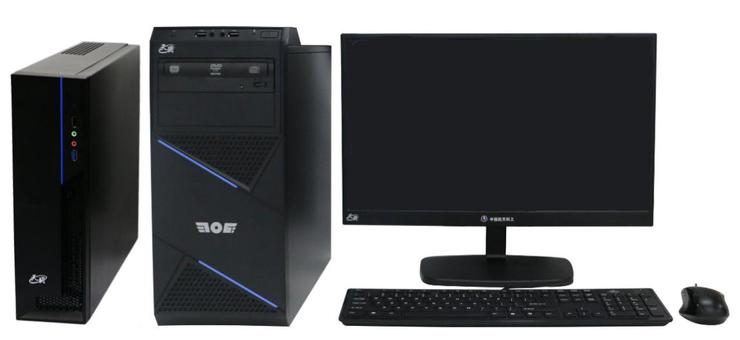from cnTechPost
Chinese chip maker Phytium to release next-gen server CPU on July 23
2020-07-18 21:22:32 GMT+8 | cnTechPost
0

Chinese chip designer Phytium Technology recently announced that it will release a new generation of server CPU on July 23rd. Baring any surprises, it will be the long-rumored FT-2500, which features eight Compute Units (CUs) and works out to a total of 512 Stream Processors (SPs).
Phytium processors were born in 1999 and the team has grown from a dozen people to over 500. The chip size has grown from hundreds of thousands of transistors to tens of billions of transistors.
Its process has also grown from 0.35 micron to 16/14nm, resulting in a complete portfolio covering servers, desktops and laptops, and high-performance CPUs for embedded systems.
At the end of last year, Phytium held a launch event in Beijing and introduced a number of FT-1500, FT-2000 series Processor.
The FT-2000+/64 is aimed at enterprise-class high-performance servers, using FTC662 architecture. It has 64 cores, the process is 16nm and it clocks at 2.2-2.4GHz.
It supports one PCIe 3.0 x1 and two PCIe 3.0 x16 with 96W power consumption and peak computation performance is 588.8GFlops.
The new CPU announcement for multiple CUs should be the FT-2500 series, which is based on the FT-2000 series, it is also 16nm 64 core.
It has been upgraded to the FC663 core architecture at 2.2 to 2.5GHz, with integrated 64MB L3 cache, support for 8 channels of DDR4-2400 memory with TDP power consumption at 100W.
The FT-2500 series was taped out in August last year, samples came out in November, and a prototype was tested in March this year. It is mainly used for multiple CUs of servers, up to 512SPs parallel, which is more suitable for supercomputer systems.
Phytium is a fast-growing Chinese IC design company. Its HQ locates in Tianjin Binhai High-Tech Industrial Development Area, China. It has also operation center, marketing service center and research center in Beijing and Guangzhou, China.
Phytium Technology is dedicated to design, manufacture and sell high performance and low power IC chips as well as services around the products. To provide satisfying products for users is the motivation and goal of Phytium.

Chinese chip maker Phytium to release next-gen server CPU on July 23
2020-07-18 21:22:32 GMT+8 | cnTechPost
0

Chinese chip designer Phytium Technology recently announced that it will release a new generation of server CPU on July 23rd. Baring any surprises, it will be the long-rumored FT-2500, which features eight Compute Units (CUs) and works out to a total of 512 Stream Processors (SPs).
Phytium processors were born in 1999 and the team has grown from a dozen people to over 500. The chip size has grown from hundreds of thousands of transistors to tens of billions of transistors.
Its process has also grown from 0.35 micron to 16/14nm, resulting in a complete portfolio covering servers, desktops and laptops, and high-performance CPUs for embedded systems.
At the end of last year, Phytium held a launch event in Beijing and introduced a number of FT-1500, FT-2000 series Processor.
The FT-2000+/64 is aimed at enterprise-class high-performance servers, using FTC662 architecture. It has 64 cores, the process is 16nm and it clocks at 2.2-2.4GHz.
It supports one PCIe 3.0 x1 and two PCIe 3.0 x16 with 96W power consumption and peak computation performance is 588.8GFlops.
The new CPU announcement for multiple CUs should be the FT-2500 series, which is based on the FT-2000 series, it is also 16nm 64 core.
It has been upgraded to the FC663 core architecture at 2.2 to 2.5GHz, with integrated 64MB L3 cache, support for 8 channels of DDR4-2400 memory with TDP power consumption at 100W.
The FT-2500 series was taped out in August last year, samples came out in November, and a prototype was tested in March this year. It is mainly used for multiple CUs of servers, up to 512SPs parallel, which is more suitable for supercomputer systems.
Phytium is a fast-growing Chinese IC design company. Its HQ locates in Tianjin Binhai High-Tech Industrial Development Area, China. It has also operation center, marketing service center and research center in Beijing and Guangzhou, China.
Phytium Technology is dedicated to design, manufacture and sell high performance and low power IC chips as well as services around the products. To provide satisfying products for users is the motivation and goal of Phytium.


